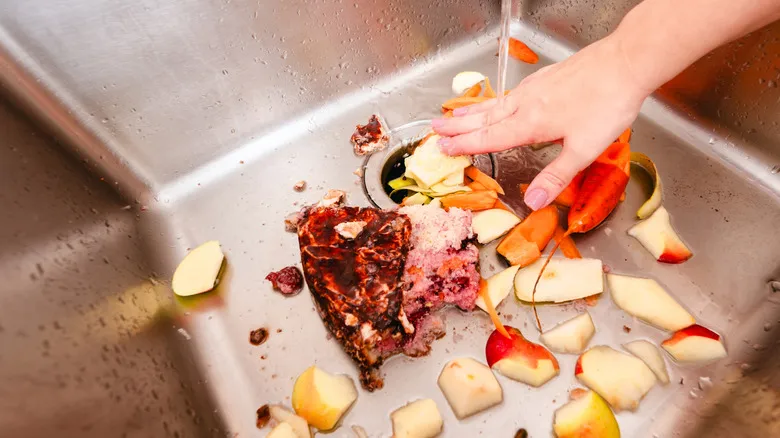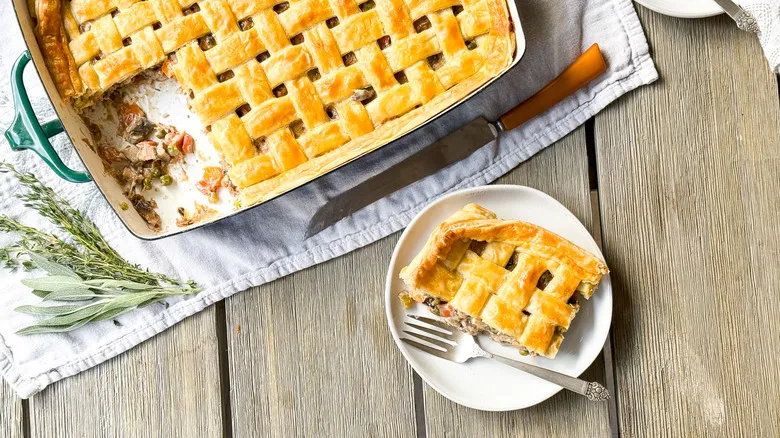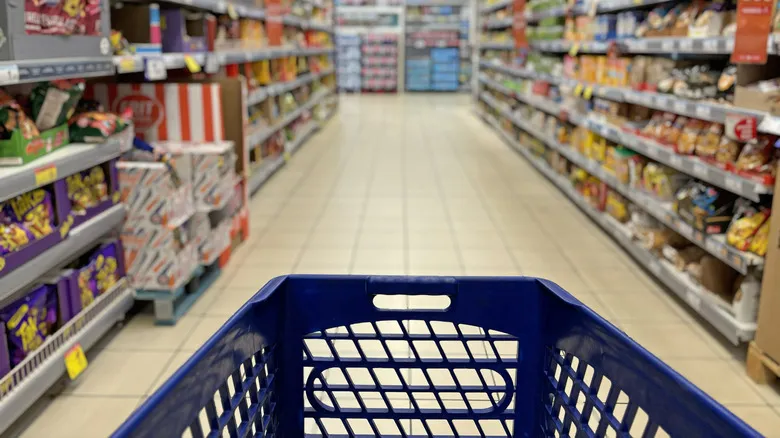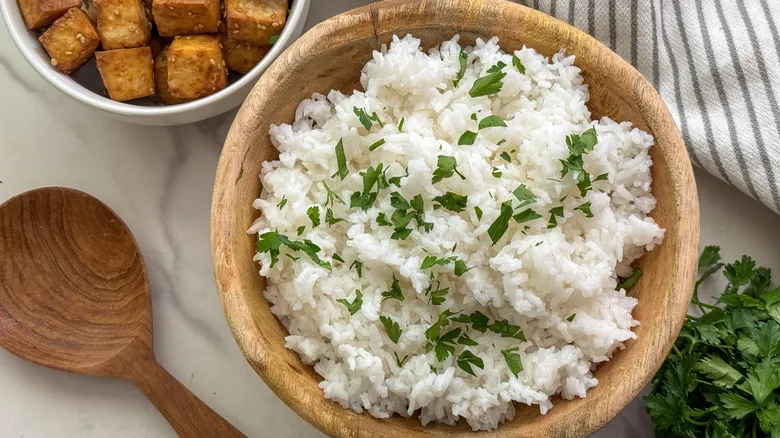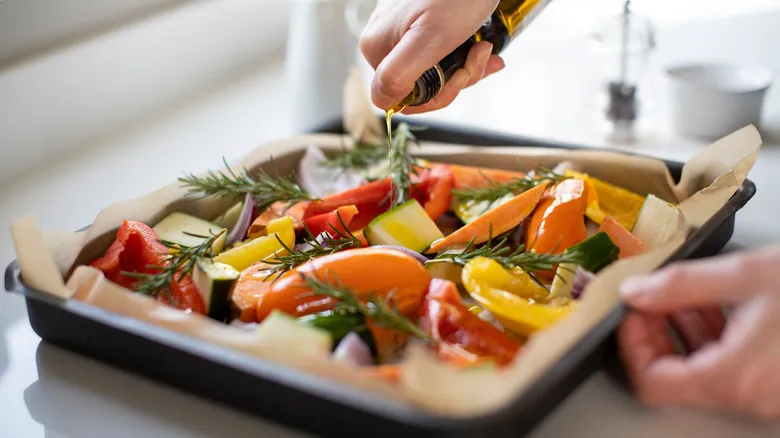Grease and oils
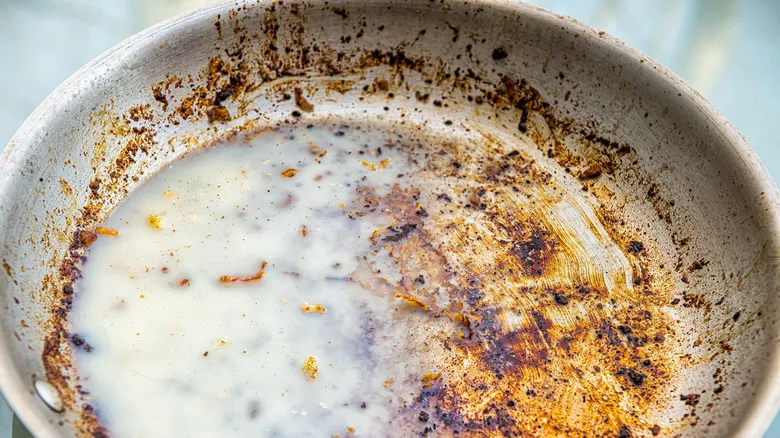
It's a widely recognized fact that certain types of grease and cooking oils can be detrimental to your plumbing system. While it may seem convenient to pour that unpleasant grease down the drain, you could be setting yourself up for significant headaches (and expenses!) in the future. Substances like bacon grease, butter, and fatty liquids such as heavy cream can wreak havoc on your garbage disposal. As these materials cool, they solidify and cling to the disposal blades and the inner surfaces of your pipes. Over time, this accumulation restricts water flow and results in stubborn clogs that are hard to clear. Even hot water won't provide a lasting solution — the grease simply moves further down the pipes and hardens again.
If you absolutely need to dispose of grease in the garbage disposal, consider flushing it with cold water. This can help some of the greasy liquid solidify, making it easier for the disposal to grind it down before it causes a blockage. However, prevention is crucial. Instead of pouring it down the drain, collect the grease in a container, let it solidify, and then throw it away in the trash.
Coffee grounds
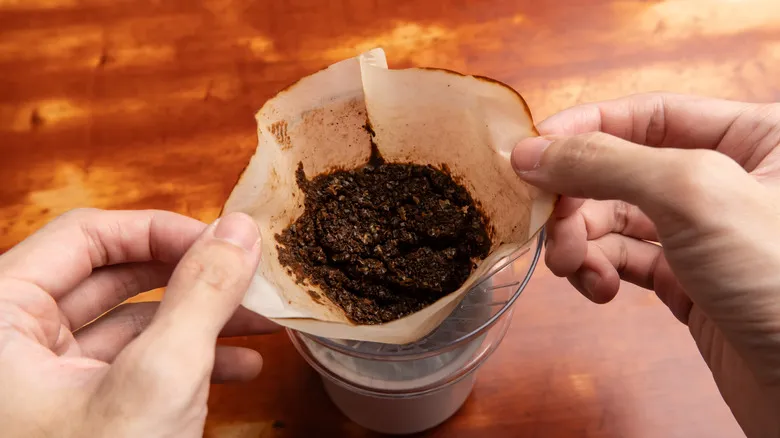
Your morning cup of coffee might be heavenly, but its leftover grounds can be troublesome. Many people mistakenly believe that pouring coffee grounds down the sink will help freshen up their garbage disposal, but this can actually be harmful. Coffee grounds do not dissolve in the disposal; they tend to accumulate and create a thick, pasty sludge. This buildup can lead to clogged pipes and hinder proper drainage, trapping other food scraps and resulting in unpleasant odors.
Instead of sending them down the disposal, consider throwing them in the trash. Alternatively, there are several fantastic ways to repurpose used coffee grounds! You can compost them to enrich your garden with nitrogen, or use them as a natural deodorizer in your refrigerator.
Bones and hard shells
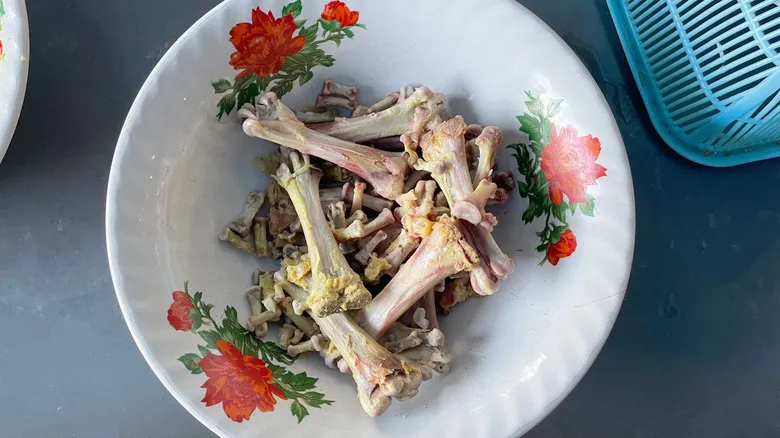
Your garbage disposal is robust, but it’s not designed to handle bones. Accidentally dropping a small bone while deboning a fish may not completely ruin the appliance, but it’s best to avoid putting any bones in there. Chicken and beef bones, as well as small seafood shells like shrimp, are too tough for it to grind effectively. Trying to process these items can damage the blades, create clogs, and even harm the motor, resulting in expensive repairs or replacements.
Hard shells from lobster or crab can be equally damaging. To protect your appliance, dispose of bones and shells in the trash or in a municipal compost bin that accepts animal byproducts, if one is available. By treating your disposal with care, you can extend its lifespan and reduce the risk of mechanical issues.
Eggshells
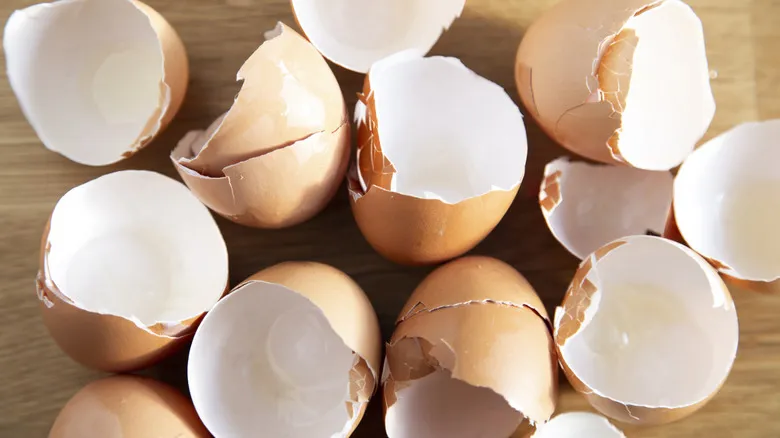
Clearly, eggshells are not as strong as bones, but they can still be problematic for your garbage disposal. The issue lies in the thin membrane that lines the inside of the shell. This sticky layer can adhere to the blades, causing the motor to jam and decreasing its efficiency — not ideal, we know. To make matters worse, the finely crushed shell fragments don’t dissolve; instead, they build up and lead to clogs over time.
The good news is that, similar to coffee grounds, you can repurpose your eggshells for a beneficial use instead of tossing them down the drain. The best option for eggshells is to place them in your compost bin, where they can decompose naturally and enhance your soil.
Pasta and rice
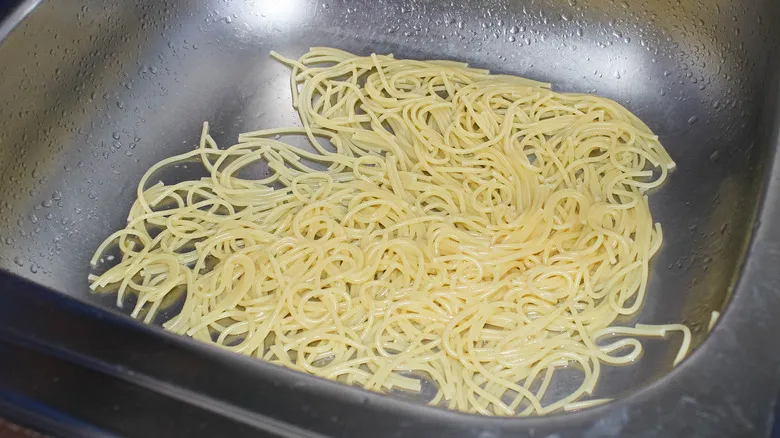
Pasta and rice are two seemingly harmless foods that can actually cause problems for your garbage disposal. If you've ever let pasta or rice sit in liquid for too long, you may have noticed how they become overly soft and mushy, releasing starches into the liquid. The same thing can occur in your drain. When these carbohydrates come into contact with water, they expand and create a sticky paste that adheres to the walls of your pipes. Additionally, pasta's slippery and stretchy nature can become entangled in the disposal blades (especially with long noodles like spaghetti), leading to further blockages.
Of course, if you accidentally drop a few macaroni noodles while draining hot water, you’re likely not in serious trouble. However, it’s best to avoid disposing of large amounts of these foods. To prevent any issues, make sure to scrape off excess pasta and rice into the trash before rinsing your dishes.
Recommended
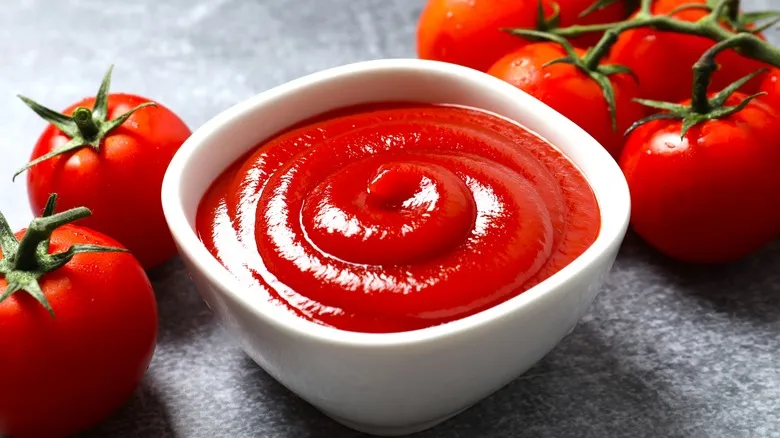
Why Ketchup Is The Secret Ingredient Your Stews Are Missing
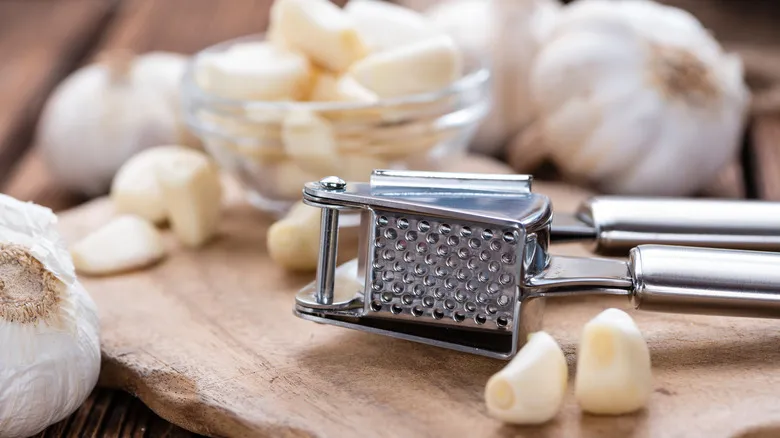
Why Garlic Presses Are Actually One Of The Worst Ways To Mince Garlic
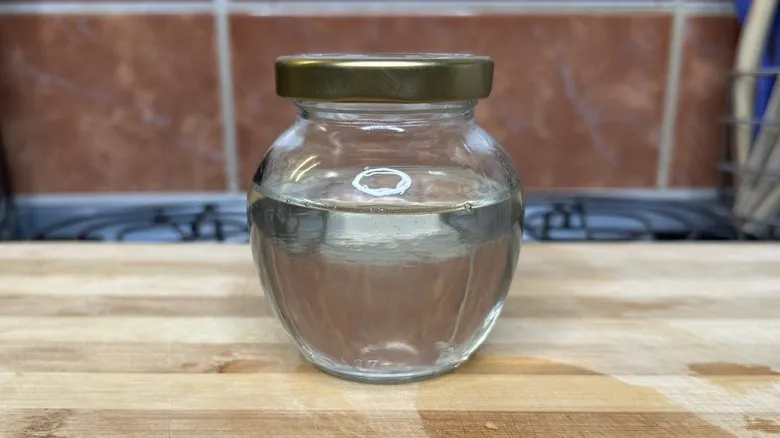
How To Make Simple Syrup For Cocktails (Plus 3 Tasty Upgrades)

Julia Child's Beurre Blanc Is The Restaurant-Style Sauce You Can Make Any Night Of The Week
Next up

